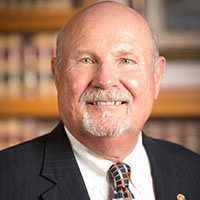Binger Criminal Lawyer, Oklahoma
Sponsored Law Firm
-
 x
x

Click For More Info:
-
The Handley Law Center
111 South Rock Island P.O. Box 310 El Reno, OK 73036» view mapAccident & Injury, Wills & Probate, Criminal Taking Care Of You
At The Handley Law Center we get it. We represent clients throughout Canadian County and across Oklahoma in a wide variety of legal areas.
800-714-5951
Fletcher D Handley
✓ VERIFIEDCriminal, Accident & Injury, Divorce & Family Law, Estate, Oil & Gas
Fletcher Dal Handley, Jr., is a civil justice attorney with The Handley Law Center in Oklahoma. His practice is focused on Personal Injury Law, repres... (more)
 Fletcher Dal Handley El Reno, OK
Fletcher Dal Handley El Reno, OK Practice AreasExpertise
Practice AreasExpertise

